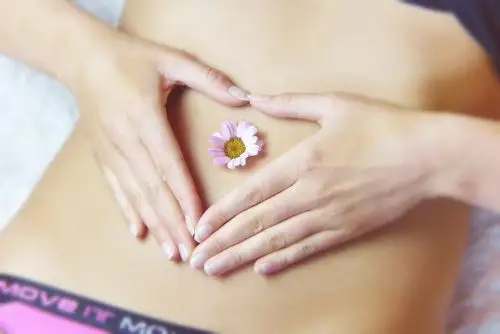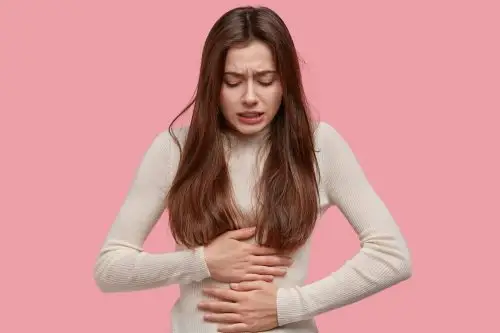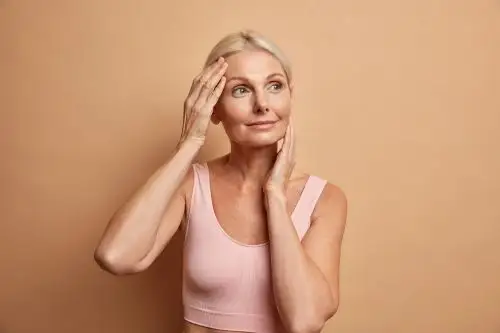How Can Ayurveda Help Women?

The female body is an intricate system. Starting from puberty, a woman begins her journey into monthly cycles of bleeding, pain, and a host of other symptoms that may plague her for years to come. Due to recurring hormonal fluctuations, even the healthiest woman will deal with occasions of pelvic pain, mood swings, fatigue, skin disorders, uterine infections, stress, depression and anxiety.
Ayurveda is a holistic system that has been treating women’s health condition for over 5,000 years. Thanks to Ayurveda’s holistic perspective, the body, mind and spirit are treated as a whole to encourage optimal health inside-out; this not only relieves the individual of certain symptoms, but also tackles the root cause behind them while preventing their reoccurrence.
Ayurveda’s dosha philosophy is based on the composition of each body, treating each person as a unique system, considering all the environmental, social, emotional and other impacts in a holistic way. This is what Ayurvedic customised treatment plans are founded on.
Schedule Your Free 10-Minute Consultation
*Discover holistic healing with a complimentary phone or video consultation from our expert Ayurvedic practitioner. Start your path to better health today!*
Women’s Health : Three Stages of Life
Ayurveda breaks womanhood down into three stages of life:
STAGE 1: Childhood (Balyavastha)

The stage begins at birth and ends with the peak of puberty (roughly around 16). This is the most balanced of the three stages, though problems that make their appearance and seem unrelated to menses (swollen lymph nodes, adenoids, low energy, digestive complaints, etc) may affect the menstrual cycle as the girl ages.
Symptoms: Young girls and teens may have symptoms such as a delayed onset of menses, acne, digestive problems, developmental disorders, lymphatic congestion, weight gain, and endocrine imbalances. Chronic conditions such as asthma and diabetes must also be addressed as soon as possible, even if they seem unrelated to the girl’s cycle. Polycystic ovarian syndrome (PCOS) and endometriosis can also be diagnosed during adolescence.
Dominant dosha: Kapha, with Pitta firing up around puberty.
STAGE 2: Middle Age (Madhyamavastha)
A woman’s Middle Age is marked by her most fertile years. The peak of her hormonal capacity is reached during 16 and 22 years, and the woman remains fertile well into her 30s. The gradual decline in fertility will begin at the age of 40, and sometimes even earlier. This stage ends with the onset of perimenopause (40-45 years old), in which case the woman moves onto the third stage of her life.

Symptoms: For fertile women, conception may be either easy or problematic, especially when older age is concerned. Conditions such as PCOS, endometriosis, chronic uterine/genital infections, urinary tract infections, pelvic inflammation, uterine fibroids and other disorders may be attributing to this. It is a stage in life where endocrine imbalances also come to the forefront, and where many women can develop hyper or hypothyroidism, type 2 diabetes, and other metabolic disorders that they didn’t have before.
PMS symptoms can also become quite intense during this stage (and can even evolve into PMDD – Premenstrual Dysphoric Disorder) and affect work, mood, and life overall. Stress, anxiety, and depression are also commonly experienced at this stage. Fatigue is also another leading symptom, as women during this stage are often overworked; this can in turn compromise their internal organs and overall vitality.
Dominant dosha: Kapha.
STAGE 3: Old Age (Vriddhavastha)

This stage includes the ages of rapid hormonal decline, starting approximately around the age of 40-45 (perimenopause). By 60, the woman will have ceased menstruating or, in rare cases, will have consistent bleeding that may require surgical treatment.
Symptoms: The early stages of Old Age are marked by scanty or absent periods. New symptoms, such at hot flushes, joint pain, skin dryness, fluid retention, constipation, insomnia, hair loss, weight gain, and fatigue, will have begun to emerge. As the woman ages and reaches menopause, bone mass will decline along with skin suppleness and her fertility, and conditions such as arthritis and osteoporosis may develop.
Dominant dosha: Kapha or Pitta (perimenopause), Kapha or Vata (menopause).
Depending on which stage of life she is currently experiencing, a woman’s Ayurvedic treatment plan will be customised accordingly.
What is the Ayurvedic Treatment Plan for Women?
While there are three stages in a woman’s life, there are essentially two factors Ayurveda considers: Is the woman fertile or infertile?
- Women in the fertile stages (<40) may have host of different conditions affecting their fertility, even their lives overall. In such cases, Ayurvedic treatment will address the particular problem(s) at hand as well as the affected organs.
- Women who are in their perimenopausal of menopausal years (>40) are treated differently, as their fertility is already in decline. The hormones cannot be “brought back”, but the ageing process can be slowed down. This is done via rejuvenating the entire system, to the point that the body can keep producing hormones on its own for as long as it is able to.
At the Yatan Centre, our customised Ayurvedic treatments for women, regardless of age, normally include:
- Lifestyle changes
- Herbal medicine
- Diet plans and food recommendations
- Yoga
- Pranayama (breathing techniques)
- Rejuvenation experience
As each woman is different, so will each treatment plan be tailored accordingly.
Schedule Your Free 10-Minute Consultation
*Discover holistic healing with a complimentary phone or video consultation from our expert Ayurvedic practitioner. Start your path to better health today!*
How is Ayurveda Different to Western Medicine?
Women in the West are treated by contemporary healthcare professionals as if they were the same person. They are prescribed a “one-fits-all” medicine to either supress their symptoms or offer them temporary relief without addressing the root cause.
But not all women are the same, or should be treated as such!
Furthermore, Western Medicine does not look at the body system as a whole, nor does it offer customised treatment or is geared towards prevention. Prescription drugs also come with a plethora of side-effects that can harm your internal organs if taken over time.
Ayurveda is a safe, side-effect free science that offers customised treatment plans and remedies that address the body as a whole. Women of any age can benefit from Ayurveda’s all-natural treatment options, and can expect to feel and look younger as they transition to the next stage of their life.
From adolescence to retirement, Ayurveda is well equipped to address these issues in a truly holistic fashion. When balance is restored to the system the body is able to effect its own cure, but as imbalances vary greatly between individuals, a careful Ayurvedic assessment is an essential first step.
The most common health concerns for which female patients seek treatment at this clinic are:
Articles
Low Testosterone (Libido) in Women
Ayurvedic Treatment For Polycystic Ovarian Syndrome
Ayurvedic Treatment For Female Incontinence
Women’s Health – The Ayurvedic Perspective
Watch our short videos
Please view our ailments glossary for more information




















